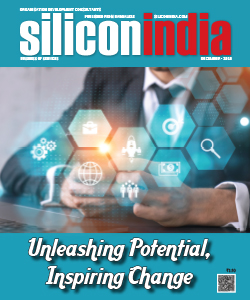Recent Technology Trends Driving Digital Transformation to the Next Level

Rajul is a seasoned technology leader with over three decades of experience across diverse tech verticals. Additionally, he was also the co-founder of aSpark - a nextgen startup focused on emerging technologies such as big data, cloud, mobile and many others.
Siliconindia recently got a chance to interact with Rajul Rana, CTO, Orion Innovation, wherein he shared his valuable insights on the current technology landscape, its impact on digital transformation among businesses and many other key aspects. Below are a few selected extracts from the exclusive interview
Share your thoughts on the current digital transformation landscape in India.
In today's dynamic and hyper-competitive business landscape, it is extremely critical for organizations across all industries to offer enhanced customer experiences by leveraging cutting-edge technologies in order to maintain a competitive edge in the market. Additionally, the rapid advancements that we are witnessing in the digital space lately has given birth to numerous advanced technologies that are now completely transforming the way most industries function, thus making digital transformation a continuous journey and not a specific destination. Additionally, the recent introduction of Generative AI is expected to further drive the digital adoption and give rise to 'Digital Transformation 2.0', which will definitely be the foundation stone for many revolutionary technologies and solutions in the future.
Throw some light on the key technologies that are driving digitization among Indian businesses.
While there are a plethora of factors and technologies that have been playing a pivotal role in driving widespread digital transformation, one that stands-out significantly is the cloud, which many technology experts consider to be the backbone of all other modern day technologies. Due to humongous benefits that it offers, an increasing number of companies are shifting from on-premise infrastructure to cloud so that they can derive optimum results and deliver better customer experience. Additionally, with customers now expecting flexibility in terms of being able to connect through any channel via any device at any time from any location, cloud has been one true enabler for organizations to effectively facilitate this demand.
IoT is another technology that has been driving digitization for businesses across diverse verticals. Although still in its nascence in India, IoT is expected to bridge the gap between digital and physical worlds in the coming days. Also, data analytics is another tech advancement that, when integrated with other technologies such as AI/ML, is enabling companies to predict future trends & market demands and accordingly allocate resources. Automation is another tech advancement that has gained widespread popularity across numerous industries over the last five years, with RPA, low-code no-code and Gen AI being the most preferred by companies for optimizing their processes, improve productivity, and build better customer experiences.
With increased digitization, suggest a few ways for organizations to effectively handle cybersecurity risks.
Although digitization has benefited enterprises in unimaginable ways, it has also brought along a host of unique cybersecurity related risks. Cyber criminals too are now adopting newer, more sophisticated attack techniques, further increasing the importance of having stringent security measures in place. Thus, it is important for organizations to keep in mind that cybersecurity demands continued efforts and is not a one-time thing. Having end-to-end data encryption across their network, applications, servers and edge devices is one simple yet effective way enterprises can ensure security of their resources. Additionally, they must adopt a proactive approach and conduct regular threat monitoring, penetration testing and attack simulations to identify potential risk areas and take necessary precautions to keep the wrongdoers at bay. Most importantly, it is crucial for the organization to create awareness among their employees and end users about the importance of cybersecurity and educate them on ways to identify suspicious activities and report them immediately to the concerned security personnel.
Explain the importance of balancing technology and human intervention in today's automation era.
Of late, there is a lot of discussion happening worldwide about leveraging automation technologies such as AI, robotics & IoT and how they can be integrated with manual intervention to derive optimum results. Despite the common false belief that these technologies will replace humans' jobs in the future, I strongly believe that technology will only augment the humans and make their jobs faster, easier and more efficient. Additionally, it is noteworthy that no matter how efficient technologies are, they are not completely accurate or fool-proof and subject to bias/hallucinations. Thus, technology should only be used to facilitate the decision making process and not make decisions on their own, as they are not capable of taking the emotional quotient into account while making a decision. Thus, human intervention becomes critical to analyze the insights provided by technology and take further decisions.
How do you expect the technology landscape to evolve in the coming years?
Humans are built to push the boundaries of what is possible today, and the same goes with technology as well. While we have seen a lot of tech advancements in terms of cloud, mobility, IoT and many others over the last decade, their adoption is yet to happen to the fullest potential. Thus, going forward, I expect many more tech disruptions to happen in the near future. Also, as Gen AI advances further and attracts many more use cases, it will no doubt takeover the entire digital transformation phenomenon over the next five years. As a result, I believe every software or code that has been ever written so far will need a Gen AI upgrade to remain relevant and produce optimum results. Further, despite the widespread research happening in the quantum computing area today, I feel it is still too early to become mainstream and will require few more years to gain better adoption across industries.
Read More News :
Latest Trends & Tech Advancements Facilitating the Logistic Sector's Evolution to the Next Level
Zero Trust - The 'Guardian Angel' for Modern Day Organizations against Cyberthreats

.jpg)


.jpg)
.jpg)